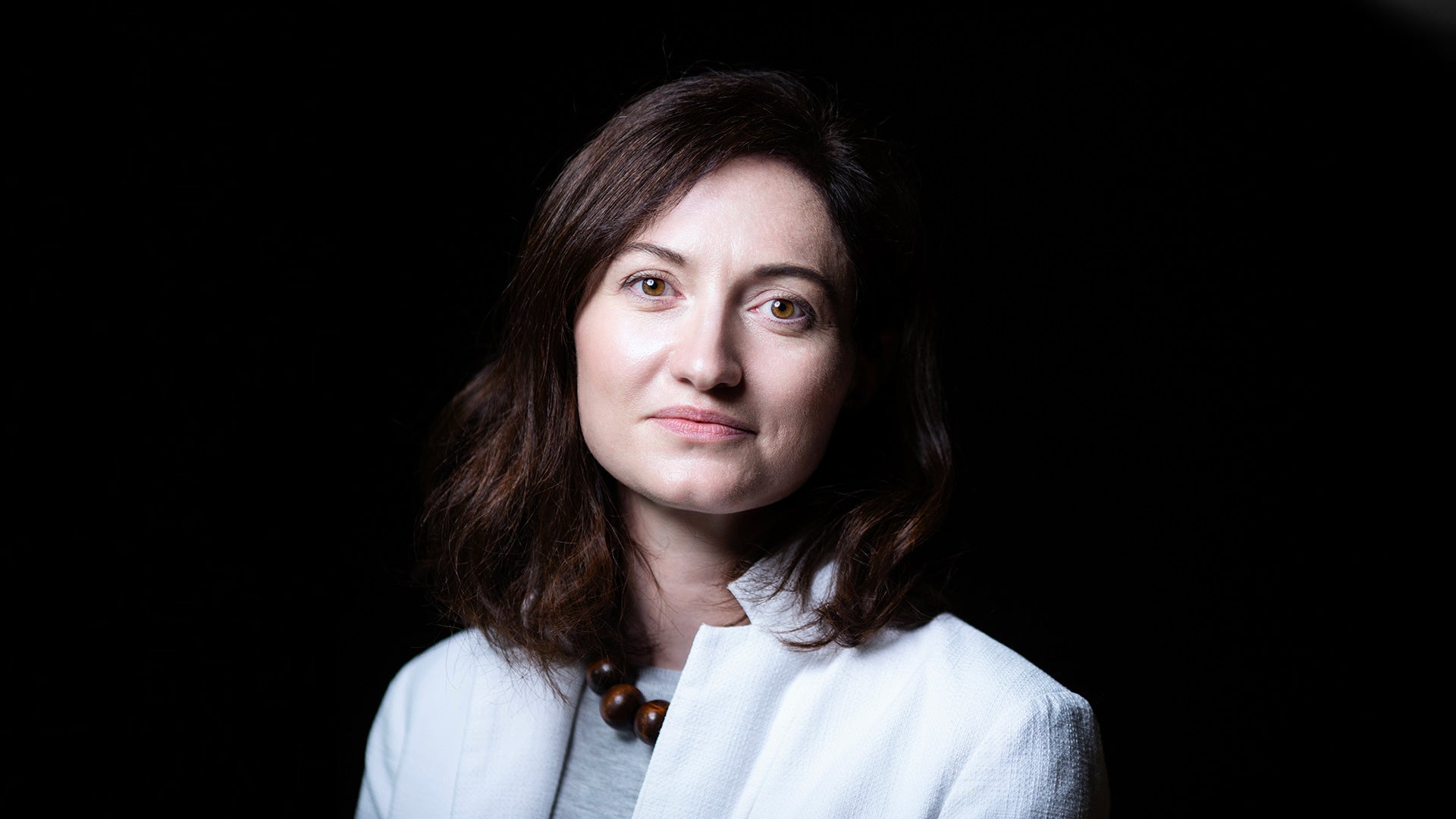When Rebecca Leshan got her Ph.D. in Molecular and Integrative Physiology from the University of Michigan in 2009, she had no idea that she would one day lead a think tank. She was headed for several years of postdoctoral fellowships working on how the brain controls hunger. She then spent a couple years working for a unit of the U.K. government—the U.K. Science and Innovation Network. In 2016 she came to lead the Banbury Center at Cold Spring Harbor Laboratory, a biosciences think tank.
The Banbury Center is a bucolic setting for long, sometimes challenging conversations between experts. Since 1978, it has convened 12–20 meetings per year on subjects ranging from criminal justice to infectious diseases to gender equity. Meetings are limited to two dozen or so people, with participants in residence at the Banbury property for two to three days.
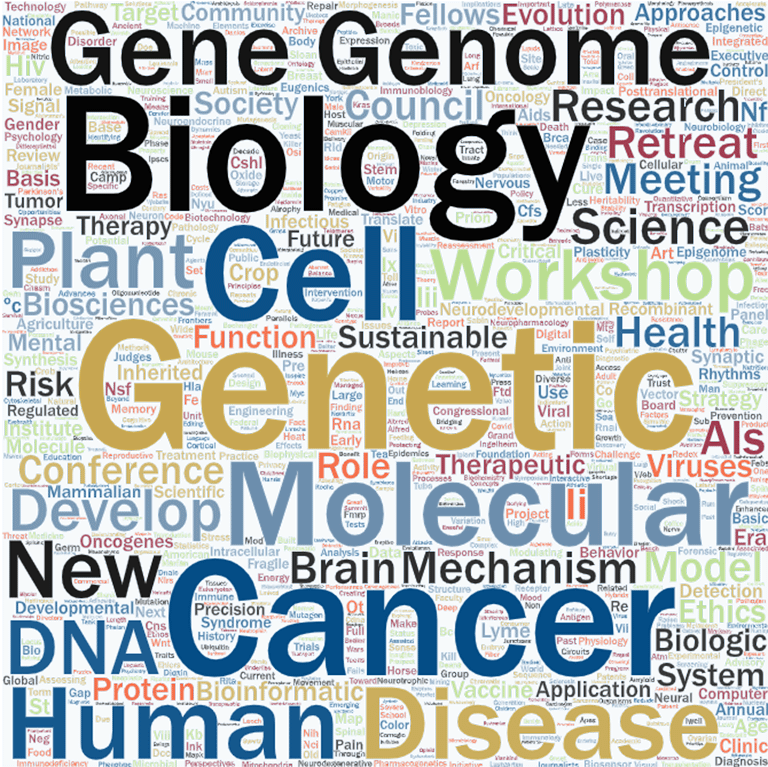
“The Banbury Conference Center is a critical connector between contemporary biology and how society comprehends and leverages advances in scientific knowledge across every aspect of our daily lives,” said CSHL President and CEO Bruce Stillman. “The diversity of perspectives that convene at a meeting represent academia, government, industry, foundations, and non-governmental organizations because it takes conversations and collaborations involving all of these sectors of society to realize progress.”
One of the most important enablers of challenging conversations is the careful way each meeting is structured. Leshan is convinced, “the shared, in-person experience breaks down barriers between people who may not have known each other before.”
Meetings are invitation-only to scientists and other key stakeholders. To keep conversations as open as possible, discussions held at the meetings are confidential. Leshan says:
“You can’t just come in with the science and expect everyone to get on board. You have to say: Who are the people that could impact this field beyond the scientists? The insight from science is critical, but at the end of the day, we need to have something that the people who can do something about it can take away.”
In 1976 the Robertson family donated their Banbury Lane property to Cold Spring Harbor Laboratory. Their residence and detached 7-car garage became the Robertson House and Conference Center, respectively. The house is where Banbury attendees eat meals, have cocktail hours, and encounter each other for random conversation. Presentations are conducted in the now mostly glass Conference Center.
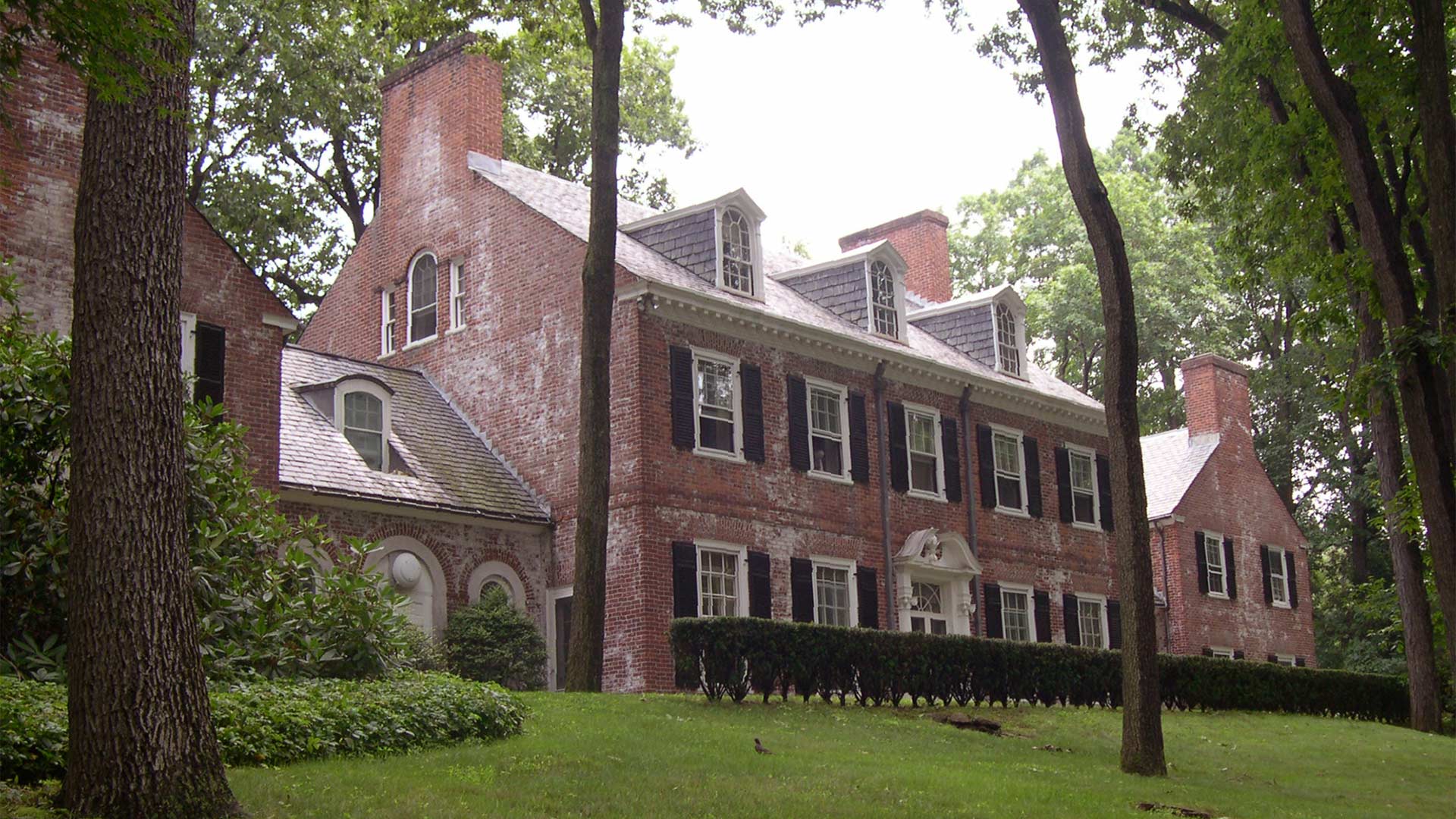
Leshan and her predecessor leaders at Banbury learned to balance confidentiality and transparency to maximize impact. Many topics require leaders in the field to buy into the meeting’s conclusions, so it is important to leave room for diverse voices, including younger colleagues or members of under-represented groups. Funding for meetings can also be a challenge, since they are often centered on emerging fields that currently exist only at the intersection of other, more mature, fields.
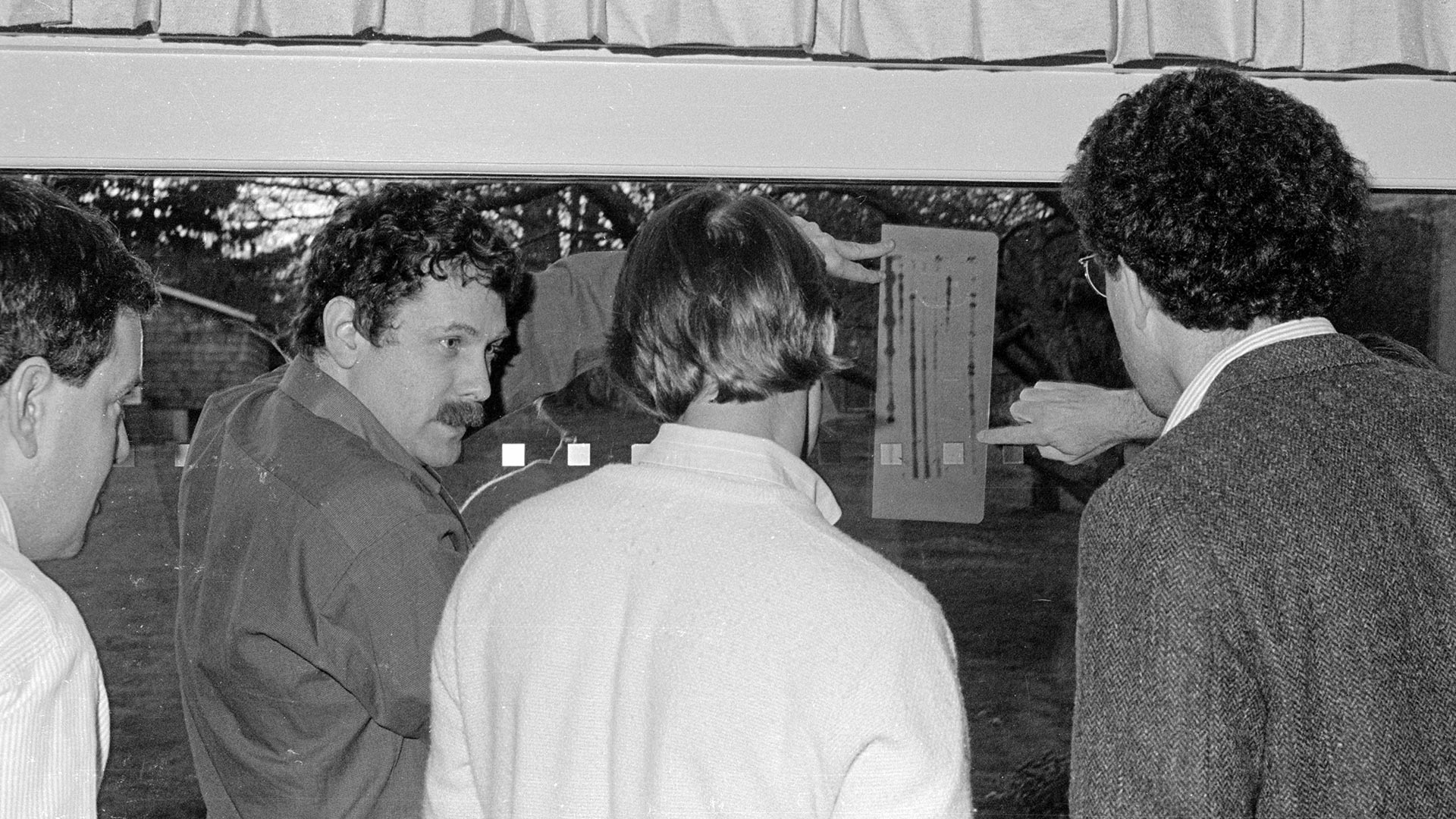
An eminent MIT geneticist, Eric Lander (on the left), held the DNA film up against a window and asked several other scientists what they thought; Neufeld reported they called the data garbage. Biologist and expert witness for the prosecution Rich Roberts (who would win a Nobel Prize in 1993) is in the center and Neufeld is to the right. Expert witnesses for both prosecution and defense wrote a joint statement disputing the scientific standards used by the testing laboratory to produce the evidence in question. The judge threw out the DNA evidence and outlined a three-prong test for science in the courtroom, still in use today. In 1992, the two attorneys founded the Innocence Project to exonerate those who were wrongfully convicted using DNA forensics. To date, they have helped 375 DNA exonerees.
Participants are encouraged to publicize conclusions in some useful way afterward. Some publish papers in academic journals, but in many cases the publications are policy guidance, op-eds, new collaborations, or even newly created organizations. Two to five years later, 45 percent of Banbury meetings lead to a policy change. For example, the Innocence Project can trace its genesis to a Banbury meeting that brought together lawyers and DNA experts to figure out an appropriate role for DNA in the courtroom. New diagnostics and treatment approaches for Lyme disease came out of Banbury meetings focused on the disease.
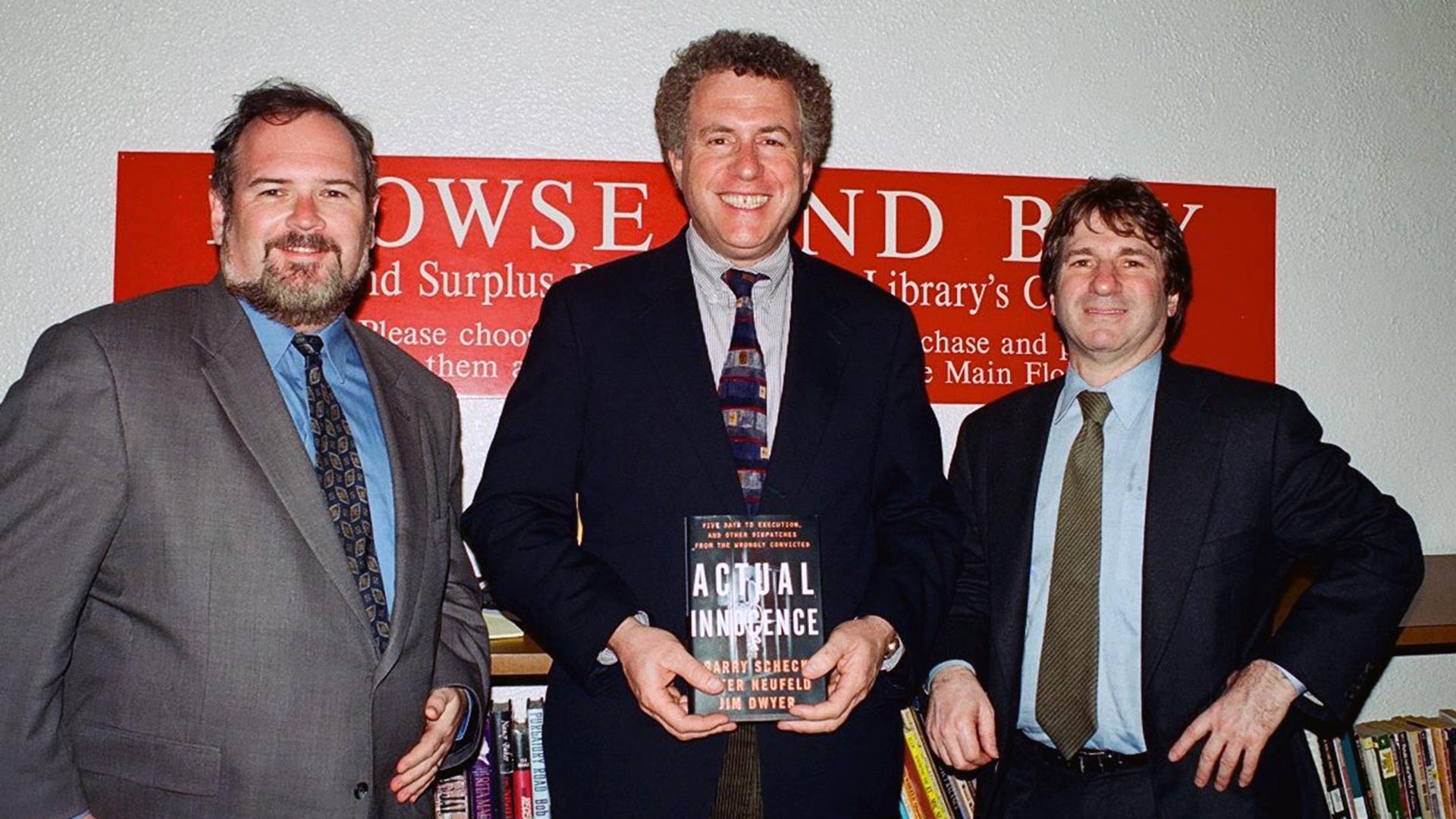
When the COVID-19 pandemic closed down live meetings in early 2020, the Banbury Center faced an existential crisis. How could it continue to have impact if it could not stage its signature in-person meetings?
Leshan re-convened previous in-person groups to continue their work remotely. She is pre-convening subsets of people to prepare for future meetings. For topics of particular urgency, like COVID-19, she is organizing video conferences. She also helps participants from previous meetings with publishing their work.

The Banbury Center held its first Lyme disease meeting in 1991, bringing together hundreds of experts over the decades to discuss this illness that affects 300,000 new patients each year. In 2016, diagnostics experts recommended better ways to diagnose Lyme disease, using more modern approaches including ‘next generation’ immunoassays or PCR tests. The FDA and CDC updated their guidance in 2019 to allow the immunoassays.
After the pandemic, Leshan looks forward to hosting meetings at the Banbury Center again, retaining the option to do some planning and follow-up through virtual small group meetings.
The need for a biology-focused think tank is clear. The Banbury Center will continue to bring the right people together to translate science into a better society. Along the way, Leshan will increase the diversity of participants, expand the variety of meeting outputs, archive and make available past meeting materials, and develop better ways to keep track of how it all works out.
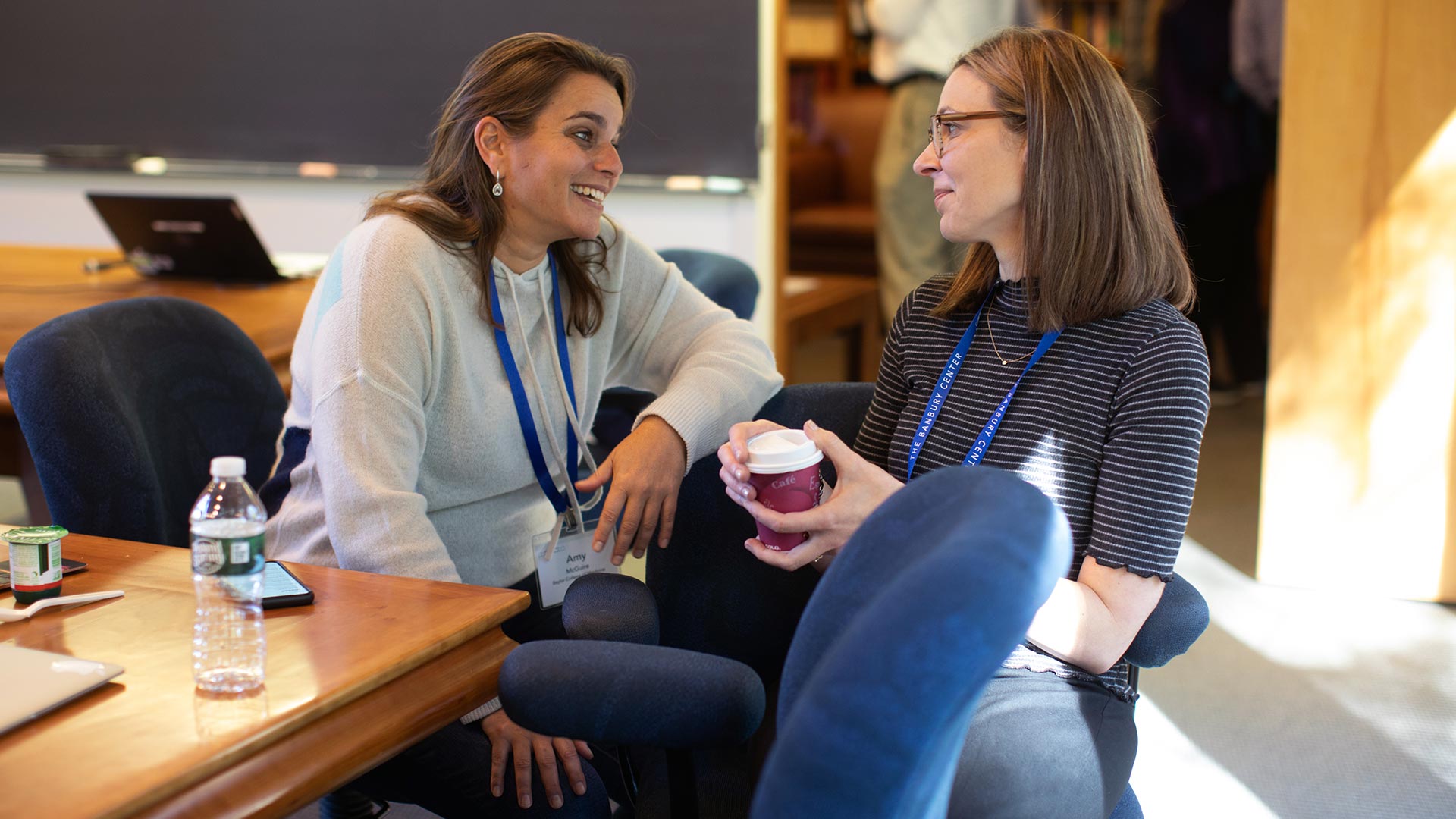
In 2018, after the FBI caught the Golden State Killer by using a genetic database, Leshan put together a meeting on forensic genealogy. She said, “You can see this heading into a place that is going to have a lot of ethical questions.” The attendees tried to find policies to balance law enforcement needs with reasonable expectations for privacy. In this photo, Amy McGuire (left) is deep in conversation with Christi Guerrini (right). Both are from Baylor College of Medicine.
Written by: Eliene Augenbraun, Creative Director | publicaffairs@cshl.edu | 516-367-8455
